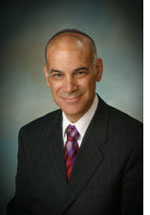By Rabbi Leonard Rosenthal

SAN DIEGO — In reading a book (“Galileo’s Daughter” by Dava Sobel) about the sixteenth and seventeenth century scientist, astronomer, and philosopher Galileo Galilei, I learned that despite his run-ins with the Catholic Church, Galileo was a deeply religious man. His religious beliefs, however, were out of synch with the orthodoxies of the church of his day. They were more attuned to what modern liberal religious thinkers, including Jews, believe today.
Sobel writes, “As he [Galileo] had once heard the late Vatican librarian Cesare Cardinal Baronio remark, the Bible was a book about how one goes to Heaven-not how Heaven goes.
“‘I believe that the intention of Holy Writ was to persuade men of the truths necessary for salvation…such as neither science nor any other means could render credible, but only the voice of the Holy Spirit. But I do not think it necessary to believe that the same God who gave us our senses, our speech, our intellect, would have put aside the use of these, to teach us instead such things as with their help we could find out for ourselves, particularly in the case of these sciences of which there is not the smallest mention in the Scriptures….” (Galileo’s Daughter, p. 63).
This is exactly the same way that I read the Tanakh (the Hebrew Bible). The Tanakh is not a book of history or science, but of faith. To read the Bible literally (as in “God created the world in six [earthly] days) is to misunderstand it. The Bible is a book about our and our ancestors’ relationships with God and with each other, not a book of cosmological fact.
As we begin reading the book of Exodus this week, I recall the controversy that was stirred a few years ago by the Israeli archeologists Israel Finkelstein and Neil Asher Silberman in their book, “The Bible Unearthed.” Finkelstein and Silberman argued that there was not one shred of archeological evidence that proves that the Biblical Exodus ever took place. Their findings were echoed by Rabbi David Wolpe of Sinai Temple in Los Angeles, which brought him widespread condemnation from more traditional thinkers.
I defended Rabbi Wolpe during a High Holy Day sermon. At that time (2001) I said, “I am not prepared to make the same sweeping statements that Rabbi Wolpe made about the Exodus and the Bible, but I agree with Rabbi Wolpe’s basic premise: their meaning and relevance of Judaism do not depend on whether the Bible is historically accurate. Whether or not the Biblical narratives are objectively true does not impact on what the Bible and Jewish tradition teaches us about the meaning of life and our relationships with God, the world, and humanity.”
What is ultimately important about the Exodus story is not the historical accuracy of its tale of the Ten Plagues or God splitting the Red Sea, but rather of God’s demand that humans not enslave or repress one another, that God loves freedom, and that no human being (Pharaoh) should ever consider themselves God. These are the eternal truths we celebrate at Pesach each year.
Galileo’s defense of scientific truth (specifically, his agreement with Copernicus that the earth revolved around the sun) in the face of Church orthodoxy eventually led to his persecution by the Inquisition, being forced to recant, and to house arrest for the rest of his life.
Fortunately, Judaism does not make the same demands nor have the same consequences for non-orthodox thought. Even most flavors of Orthodox Judaism permit and encourage scientific inquiry and have ways of harmonizing scientific and Biblical “fact.” I firmly believe that having an open mind to the natural wonders of the physical universe leads to greater, rather than less, faith.
*
Rabbi Rosenthal is spiritual leader of Tifereth Israel Synagogue in San Diego. He may be contacted at leonard.rosenthal@sdjewishworld.com